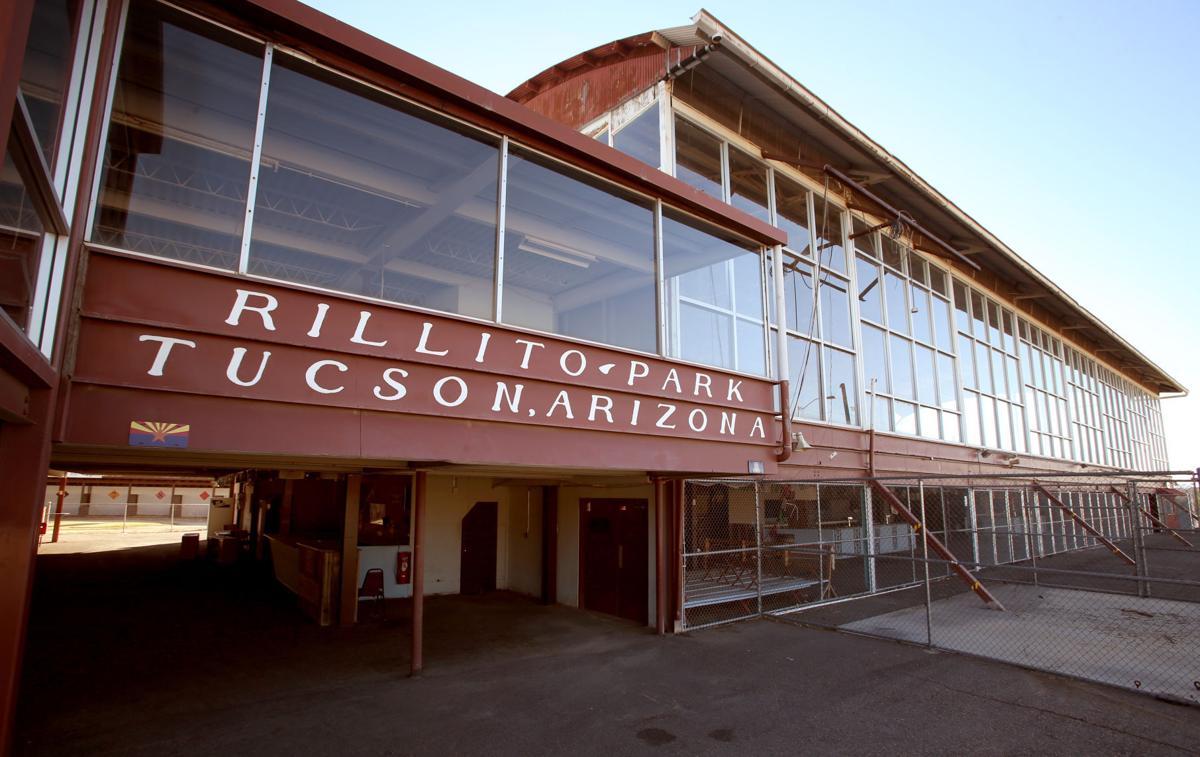With a unanimous 5-0 vote Tuesday, Pima County supervisors extended the lease for Rillito Park horse racing through 2021, likely guaranteeing $1 million in private funding for needed repairs and improvements at the aging track.
Without the extension, County Administrator Chuck Huckelberry had recommended the grandstand be demolished.
Before the vote, the supervisors heard from a number of people, the vast majority of whom spoke in favor of extending the lease and keeping Rillito horse racing alive.
“We need to honor the past, and history of horse racing, and history of events and concerts,” said Page Repp, co-creator of the Dusk Music Festival held at Rillito. “If it’s stewarded correctly, it can become the hub of an amazing amount of future activity.”
The Tucson Soccer Academy’s Ebie Aldaghi, one of a handful of speakers to ask the supervisors to stick to their 2006 resolution supporting complete conversion to sports fields, said more fields is what the board unanimously decided was “best for the community.”
“Please don’t stop now, don’t lose your sight,” he added.
County officials estimate that getting rid of the racing facilities and adding as many fields as the park can accommodate would cost around $8 million, an expense that is not budgeted .
Despite the years-long tension between horse racing and some local youth soccer organizations, which have advocated for converting the entire park to sports fields and moving the horse racing facilities, representatives of the two sides had positive things to say after the vote.
“We appreciate the opportunity to show that we can succeed,” Russell True, director of the Rillito Park Foundation Board, a subsidiary that oversees horse racing and won the lease extension, told the Star after the vote.
“We’re very pleased,” said Ted Schmidt, president of the Pima County Junior Soccer League, the umbrella organization for regional youth soccer.
Schmidt has been a longtime advocate of expanding the number of fields at Rillito and across the county to alleviate growing shortages. However, given the county’s tight budget and voters’ 2015 rejection of bonds that could have funded some park improvements, he said he appreciated the economic reality that makes moving horse racing and adding fields difficult.
“I and the thousands of kids playing youth sport are very grateful that they have given concessions to youth sport in addition to the lease, to make it a better multi-use facility for everybody,” he added.
Those concessions could include funding for additional field lighting (two of the 11 sports fields are unlit), a passageway from the four fields in the center of the track to outside it, and additional parking lot lighting to cut down on vandalism.
Less certain is a net system designed to prevent runaway balls from disrupting races. Huckelberry told the board it could cost up to $250,000, and other county officials have cited potential liability concerns.
The only available funds for such work come from a likely $1 million donation from the Bert W. Martin Foundation, the offer of which was contingent on the lease extension.
While it is private money, Huckelberry pointed out that any improvements at the county-owned facility must be approved by the board, and that things like lights for the parking lot benefit both sides.
True said the park foundation has “always included soccer in our vision,” adding that he’s in favor of improvements that “benefit the park and everyone in general, as long as everything is prioritized appropriately.”
A list of over $2 million in needed repairs and improvements for racing facilities was included in the lease amendment approved by the supervisors. Among the priorities listed were bringing racetrack bathrooms into ADA compliance, electrical work in the grandstand and clubhouse, and clubhouse roof repairs.
Huckelberry’s recommendation to the board also included limiting race days to 16, something foundation President Jaye Wells previously told the Star could limit the potential of horse racing.
Wells did not return a call for comment on the board’s decision.
WASTEWATER VOTE DELAYED
The supervisors were also set to consider a one-time 4 percent hike in the county sewer user fee, but opted to consider the increase at their next meeting, on Tuesday, Feb. 7, after a 10:30 a.m. public hearing.
County officials said three 4 percent hikes are necessary to address declining revenues and rising debt service and operation costs.
The wastewater advisory committee recommended the supervisors approve just one increase as early as possible in 2017, and hold off on the others pending the completion of a sewer rate study expected by late spring.





